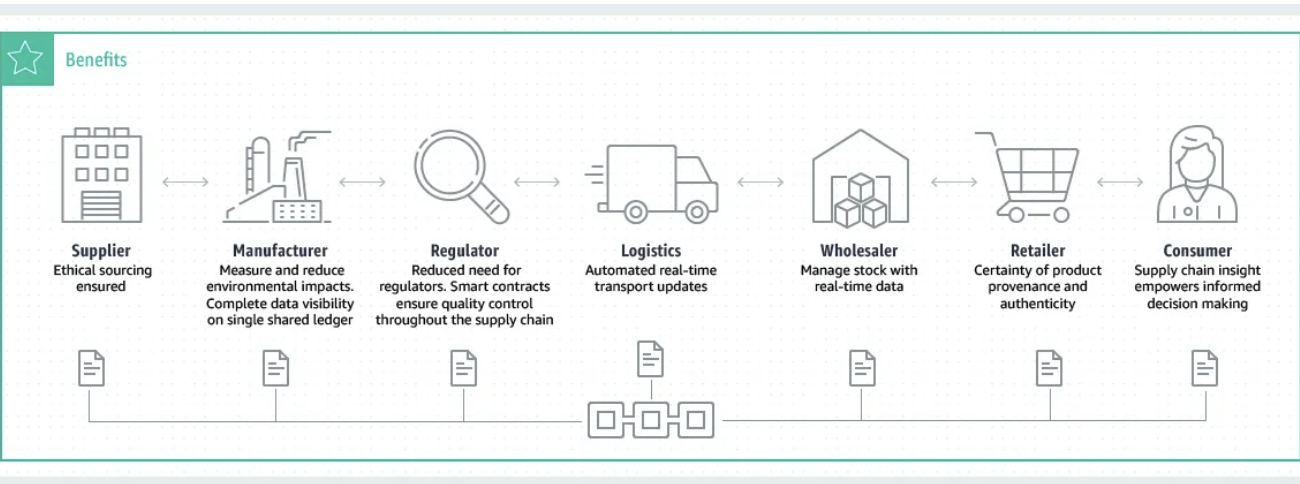Supply chains are complex networks involving multiple stakeholders, including manufacturers, suppliers, distributors, retailers, and consumers. These networks encompass various processes, such as procurement, production, transportation, and distribution.
Tracking and tracing goods across the entire supply chain requires comprehensive data recording and sharing across all stakeholders, which is often difficult to achieve.
In addition, supply chains are often global, with goods being produced and transported across multiple countries and jurisdictions. This adds additional layers of complexity, such as differing regulatory requirements, language barriers, and currency fluctuations.
Practical Uses of Blockchain in Supply Chain Management (SCM)
Blockchain has the potential to be a game-changer in this industry, providing a decentralised and transparent way of improving its efficiency and traceability.
Taking the food market for example, with blockchain we can better manage and ensure food safety and quickly trace back to the source if there’s any contamination. Similarly, ledger transactions allow for verification of goods in the fashion industry, preventing counterfeiting and helping reduce costs of material production.
This technology is disrupting every single industry and the same can be said about its impact in the pharmaceutical, art, financial, real estate and many other industries.
It’s important to note as well its potential to significantly advance ethical and sustainable supply chain operations. Blockchain enables customers to make educated decisions about the products they consume and in line with their values.
Challenges of Implementing Blockchain in SCM
Despite its potential, scalability, compatibility and data privacy are big challenges that need addressing when implementing blockchain solutions.
Due to the big volume of data involved in transactions, deciding to use blockchain must come with planning for resilient service providers that can handle the transactional load without being too costly on the speed.
This is particularly true for public blockchains, which have a limited transaction throughput due to the resource-intensive consensus mechanism.
Ensuring interoperability between different platforms and maintaining the integrity of the data as it moves between them can be difficult across so many levels in the chain. To reduce risks and show value, businesses must carefully assess their unique supply chain requirements, run pilot initiatives, and gradually scale up implementation.
Governance and regulatory frameworks are another question to be addressed. Supply chains have to comply with current regulations (data privacy, anti-money laundering, etc.).
Standards in Supply Chain
To address the challenges of complexity and scalability in supply chain management, industry standards and interoperability protocols must be established. This includes the development of common data formats, metadata standards, and APIs that allow different systems to communicate with each other.
Establishing these standards and protocols will require collaboration between industry stakeholders, technology providers, and regulatory agencies, which can be a significant challenge in itself.
* * *
In this article we discussed how supply chain management is a complex process that involves coordinating multiple stakeholders, intricate transactions, and vast amounts of data. Traditional supply chain systems often encounter problems such as a lack of transparency, ineffective procedures, and challenges in determining the legitimacy of products. These issues can lead to the production of fake goods, information asymmetry, and delays in the detection and resolution of problems in the supply chain. Blockchain solves most of these issues.
Let me know in the comments below if you know much about blockchain technologies, and if so, which implementation you think it’s the most valuable?
Thanks for reading 📖
